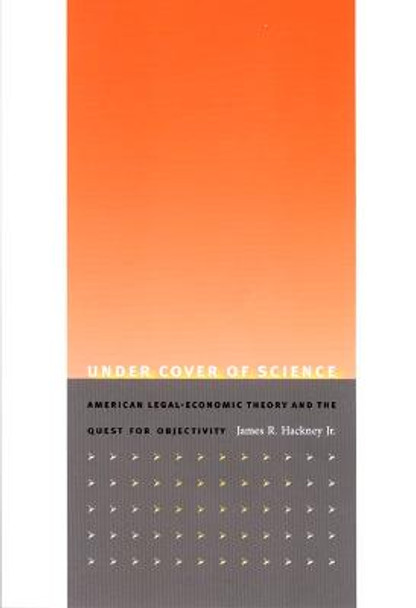Description
Hackney demonstrates how legal-economic thought has been affected by the prevailing philosophical ideas about objectivity, which have in turn evolved in response to groundbreaking scientific discoveries. Thus Hackney's narrative is a history not only of law and economics but also of select strands of philosophy and science. He traces forward from the seventeenth-century the interaction of legal thinking and economic analysis with ideas about the attainability of certitude. The principal legal-economic theories Hackney examines are those that emerged from classical legal thought, legal realism, law and neoclassical economics, and critical legal studies. He links these theories respectively to formalism, pragmatism, the analytic turn, and neopragmatism/postmodernism, and he explains how each of these schools of philosophical thought was influenced by specific scientific discoveries: Newtonian physics, Darwin's theory of evolution, Einstein's theories of relativity, and quantum mechanics. Under Cover of Science challenges claims that the contemporary law and economics movement is an objective endeavor by historicizing ideas about certitude and empiricism and their relation to legal-economic thought.
Draws connections between conceptions of science and efforts at legitimating American legal theory as an objective enterprise
About the Author
James R. Hackney Jr. is Professor of Law and Associate Dean for Academic Affairs at Northeastern University School of Law.
Reviews
"Under Cover of Science fills a genuine gap in the literature by providing a thorough overview of the relationship between developments in scientific thought and developments in legal thought. That there is a relationship has been obvious to several generations of legal historians, and there are lots and lots of references and suggestions about how it might work. But until now no one that I know of has made a focused effort to lay it all out."-Duncan Kennedy, Harvard Law School
"Under Cover of Science is a sweeping intellectual history that relates the development of law and economics to science and its claims to objectivity. James R. Hackney Jr. ranges from Newton to Darwin to Einstein, and from classical economics to institutional economics to neoclassical economics. I cannot think of another book that so extensively explores the history of the interrelations of law and economics."-Stephen M. Feldman, author of American Legal Thought from Premodernism to Postmodernism: An Intellectual Voyage
"James R. Hackney Jr. has written the definitive intellectual history of the origins of the law and economics movement. Weaving rich separate histories of legal and economic thought into broader changes in the governing premises of science and philosophy, Hackney has offered a powerful account of the rise of this influential school of thought."-Morton Horwitz, Harvard Law School
"James R. Hackney Jr.'s book does a fine job of relating the evolution of jurisprudential thinking about one important area of conventional lawyers' law, namely accident law, to the philosophical 'surround,' showing how changes in philosophy have influenced the evolution of legal thought, with specific reference to the now-dominant economic vein in that thought."-Richard A. Posner, Judge, United States Seventh Circuit Court of Appeals, and Senior Lecturer, University of Chicago Law School
Book Information
ISBN 9780822339984
Author James R. Hackney, Jr.
Format Paperback
Page Count 264
Imprint Duke University Press
Publisher Duke University Press
Weight(grams) 358g




